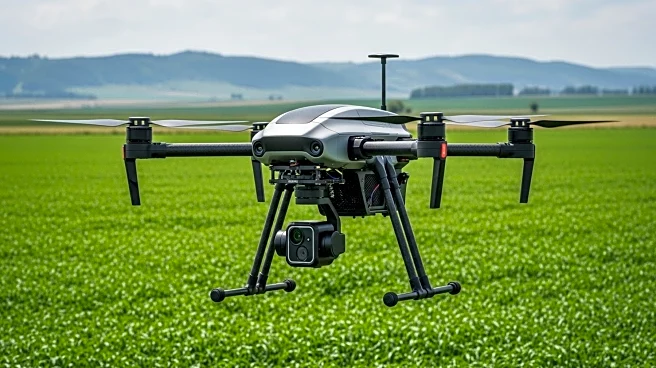What's Happening?
Czech startup Skymaps has introduced Zoneye, an AI model designed to help farmers identify weeds specific to their regions using drone imagery. Zoneye, integrated with Skymaps' CultiWise platform, can recognize 37 common weed species and pinpoint their locations in fields, allowing farmers to reduce input costs by up to 50% and increase yields by up to 20%. The tool processes millions of drone-captured images to deliver precise prescription maps that guide herbicide application, targeting only weed-infested areas. This technology is available globally to CultiWise subscribers, offering significant savings and environmental benefits.
Why It's Important?
Zoneye's introduction marks a significant advancement in precision agriculture, offering farmers a powerful tool to manage weeds more effectively while minimizing environmental impact. By reducing herbicide use and optimizing crop yields, Zoneye supports sustainable farming practices and can lead to increased profitability for farmers. The ability to adapt to local conditions and provide field-specific adjustments further enhances its utility, making it a valuable asset in diverse agricultural settings. This innovation aligns with global efforts to improve food security and reduce agricultural resource consumption.
What's Next?
As Zoneye becomes more widely adopted, farmers may experience shifts in their operational strategies, focusing more on precision agriculture techniques. The technology's success could prompt further developments in AI-driven agricultural tools, potentially leading to new partnerships and collaborations within the agri-tech industry. Stakeholders, including agricultural equipment manufacturers and environmental groups, may engage in discussions to explore additional applications and improvements to the system.
Beyond the Headlines
Zoneye's precision mapping capabilities could influence broader agricultural policies, encouraging governments to support technologies that promote sustainable farming. Ethical considerations regarding data privacy and the impact of AI on traditional farming practices may arise, necessitating dialogue among industry leaders and policymakers.









